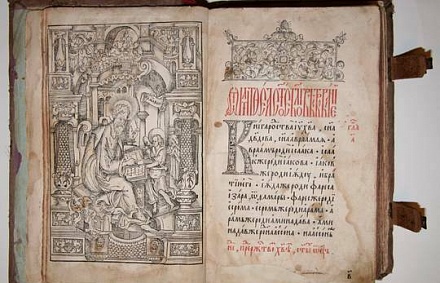
Theophylact Bulgarian. Commentary on the Gospel of Mark
Mark 1:29. Leaving the synagogue soon, they came to the house of Simon and Andrew with James and John.
Mark 1:30. Simonov's mother-in-law lay in a fever; and immediately speak to Him about her.
Mark 1:31. Approaching, He raised her, taking her hand; and the fever immediately left her, and she began to serve them.
By Saturday evening, as usual, the Lord went to the disciples' house for a meal. Meanwhile, the one who was supposed to serve in this case was possessed by fever. But the Lord heals her, and she begins to serve them. These words make it known that you, too, when God heals you from an illness, must use your health to serve the saints and to please God. Obsessed can be a kind of fever and the person is angry and from anger becomes impudent on hand. But if the word holds his hand and meekly stretches it out, then the former tormented by anger begins to serve the word. For the wrathful one, when the word restrains his hand, rises up, and thus anger serves the word.
Mark 1:32. When evening came, when the sun went down, they brought to Him all the sick and demon-possessed.
Mark 1:33. And the whole city gathered at the door.
Mark 1:34. And He healed many who were suffering from various diseases; cast out many demons, and did not allow demons to say that they knew that He was Christ.
Not without reasons added: 'when the sun went down.' Since they thought that it was inadmissible to heal on the Sabbath day, they waited until the sunset and then they began to bring the sick for healing. “Many” he healed, it is said instead of “all,” because all are multitudes; or: He did not heal everyone, because some turned out to be unbelievers, who were not healed for their unbelief, but he healed “many” of those brought, that is, those who had faith. He did not allow demons to speak in order, as I said, to teach us not to believe them, even though they were telling the truth. Otherwise, if they find someone who fully trusts them, then what they will not do, damned people, mixing lies with the truth! So Paul also forbade the inquiring spirit to say: 'These people are the servants of the Most High God'; The Holy Man did not want to hear responses and testimonies from unclean lips.
Mark 1:35. And in the morning, getting up very early, he went out and withdrew to a deserted place, and there he prayed.
After he has healed the sick, the Lord goes to a secluded place, teaching us that we do not do something for show, but if we do any good, we would hasten to hide it. And He also prays in order to show us that everything that we do good must be attributed to God and say to Him: 'Every good gift and every perfect gift comes down from above, from the Father of lights' (James 1:17). Christ Himself didn't even need prayer.





